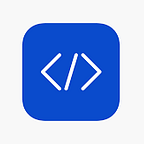“The great aim of education is not knowledge but action’’- Herbert Spencer
Perhaps you’ve just successfully concluded a Bootcamp training or an online course and earned your certification. That’s pretty impressive because according to Industry reports and instructional designers alike, only between 5 to 15 percent of students who start free open online courses end up earning a certificate.
What next? Application, I presume. So you finally decide on a project but panic at the first sign of a challenge, so you return to your tutorials, consuming more resources, but never actually putting any into practice.
Subsequently, self-doubt creeps in and you undermine your abilities and gifted nature. “Oh, what was I thinking?”, “I’ll never get this right.”
When you find yourself in this situation, remember to focus on valuing who you are, not what you do. According to Psychology Today, When you look to your accomplishments to validate your worth, you naturally feel good if you perform well, and if you perform less, you feel less worthy. But you are more than your accomplishments.
Always remember that you are worthy.
No one remembers all they’ve learned at a stretch, a lot of seniors within the tech space have admitted to falling short every once in a while, but they leverage the power of the internet, Google, for assistance.
Here are practical steps to taking action upon completion of an online lesson:
- Deconstruct a project
- Build/ work on a project
- Review someone on else’s work/project
- Teach
Deconstruct A Project: Find an already completed project and play around with it. This is very common with designers. I’ve stumbled upon great designs on the internet that were inspired by live projects, some even turn out to be better than the actual designs. Deconstructing a project helps us develop a firmer grasp for when we tweak it, to include extra features.
Build Your Project/ Work on your portfolio: How? Apply concepts you’ve learned from your tutorial course. Building projects is an active form of learning as it teaches you to solve problems on your own. Working on your portfolio helps build your imagination, and helps you self-reflect. It’s an extension of who you are, choice of colours, text, etc, and passes a message to your audience. So build it to your standard and have fun with it.
Reviewing someone else’s work/Peer review: Examining someone else’s work forces you to take a step back and figure out multiple ways of arriving at the same destination. It subconsciously alleviates your thought, especially if it is good, and if it is sub-par, remember to leave positive words of encouragement and highlight ways you feel it can be better, without actually doing the exact work.
Teach: Scientifically, we retain 90% of what we teach. We’re probably all teachers in our own rights, but this time, be deliberate about your actions. Teaching activates a deeper level of understanding of a certain concept you’ve previously learned since it’s no longer about you. You have to communicate in the simplest terms, to others as well. People learn better when they feel their teachers were once in the same boat as them. Remember to share the knowledge on all you’ve learned and challenges you came across, via writing or other multimedia platforms. Yes, there are a thousand and one articles on the same topic, but only one you! Try as much as possible not to deprive others of your awesomeness.
In conclusion, the best and most effective means of learning is by doing. As Yoda would say, “Do or do not, there is no try”. I urge you to do!
